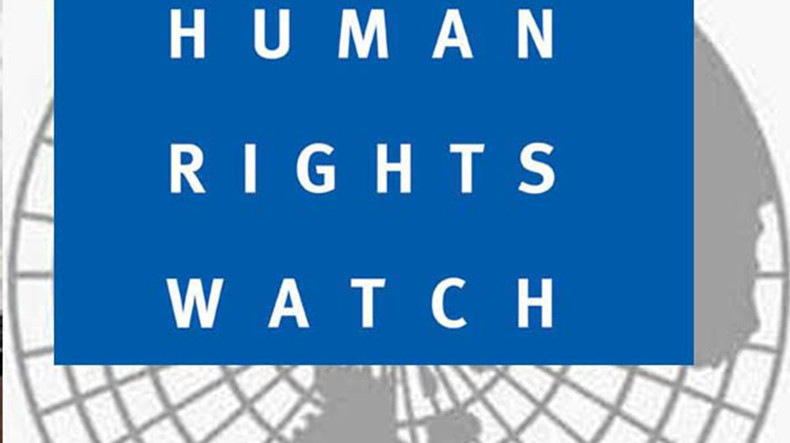Iran’s government in 2017 had a dismal record of repression and violations of the rights to free expression, a fair trial, gender equality and religious freedom, Human Rights Watch said today in its World Report 2018. Repressive elements in the security forces, the judiciary, and unelected governing bodies such as the Guardian Council, retained their tight grip on the country’s politics and their suppression of human rights.
Security and intelligence forces summoned, harassed, and arrested dozens of journalists, prominent trade unionists, and social media activists. Several human rights defenders and activists remained behind bars, including Narges Mohammadi, vice president of the banned Defenders of Human Rights Center (DHRC). Revolutionary courts sentenced several activists, and a number of Iranian dual and foreign nationals, to long prison sentences on vaguely defined national security charges that are often invoked to criminalize legitimate human rights.
“Iranian decision-makers have made it clear that addressing the myriad human rights violations in the country is simply not on the agenda,” said Sarah Leah Whitson, Middle East director at Human Rights Watch. “Authorities who actively commit human rights violations and others who stand by without challenging the abuses are responsible for the dire human rights conditions in Iran.”
In the 643-page World Report, its 28th edition, Human Rights Watch reviews human rights practices in more than 90 countries. In his introductory essay, Executive Director Kenneth Roth writes that political leaders willing to stand up for human rights principles showed that it is possible to limit authoritarian populist agendas. When combined with mobilized publics and effective multilateral actors, these leaders demonstrated that the rise of anti-rights governments is not inevitable.
In 2017, human rights groups reported that Iran had executed at least 476 people as of November 27, including four sentenced to death for nonviolent crimes they allegedly committed as children. On October 23, the Judiciary announced that it had sentenced Ahmad Reza Djalali, an Iranian academic who lives in Sweden, to death on espionage charges.
In one positive sign, on October 18, the Guardian Council approved a long-awaited drug law amendment that significantly raises the bar for a mandatory death sentence for drug-related offenses after the parliament did not act on an initial draft law to eliminate the death penalty for nonviolent drug offenses. On November 21, Abbas Jafari Dolatabadi, Tehran’s prosecutor, said that 3,300 people convicted of drug offenses had already filed appeals.
There were new signs of discrimination against religious minorities. Mahvash Sabet and Fariba Kamal Abadi, two of the seven members of the former leadership group of the Baha’i community in Iran, were released from prison after serving 10-year prison sentences. But as of November 21, 92 members of Baha’i faith remained in Iranian prisons. On October 8, the court of administrative justice suspended Sepanta Niknam, a Zoroastrian member of the Yazd City Council, because of his religion.
Iran’s 1996 council election law allows candidates from recognized religious minorities to run as candidates in city and village elections as long as they “believe in and demonstrate their commitment to their own religious principles in practice.” But in May the head of the Guardian Council published a letter declaring that it is against Sharia (Islamic law) for non-Muslims to be candidates in Shia Muslim-majority areas.
Iranian laws and policy discriminate against women in personal status matters related to marriage, divorce, inheritance, and child custody as well as participation in the public sphere. Women are marginalized in the economy, constituting only 16 percent of the workforce. On the campaign trail, President Hassan Rouhani criticized gender discrimination and promised to “increase women’s participation in high-level management positions.” He did not, however, select a female minister despite expectations that he would do so by many, including members of parliament.
Scores of human rights defenders and political activists, including Abdolfattah Soltani, Atena Farghdani, and Reza Shahabi remain behind bars for their peaceful activism. Former presidential candidates Mehdi Karroubi and Mir Hossein Mousavi, and Zahra Rahnavard, a scholar who is Mousavi’s wife, have remained under house arrest without charge or trial since February 2011. Intelligence officials have also have detained Sasan Aghaei, 34, deputy editor of the reformist daily Etemad, and Yaghma Fashkhami, a journalist for the Didban Iran website, for more than three months without clear charges.























































